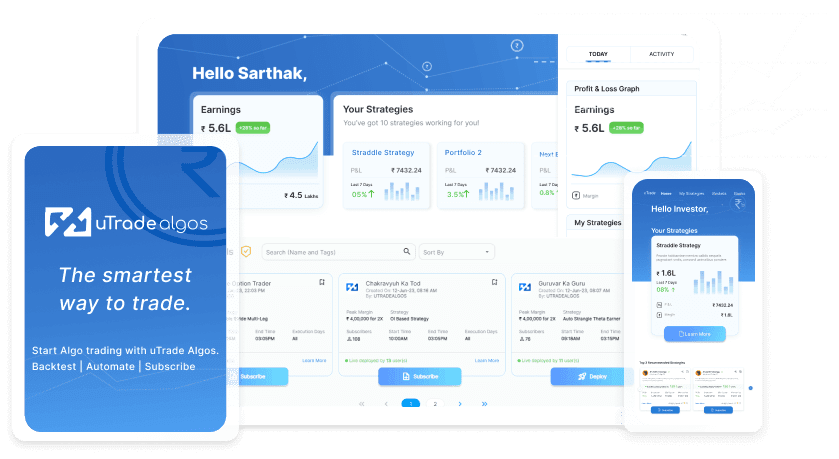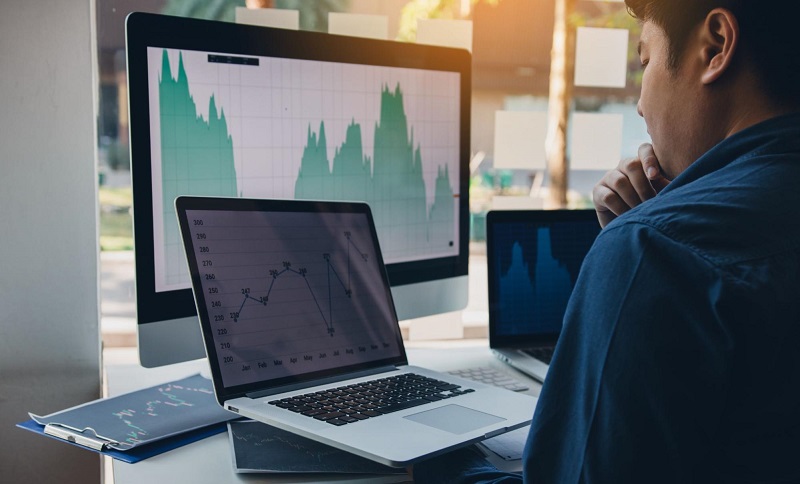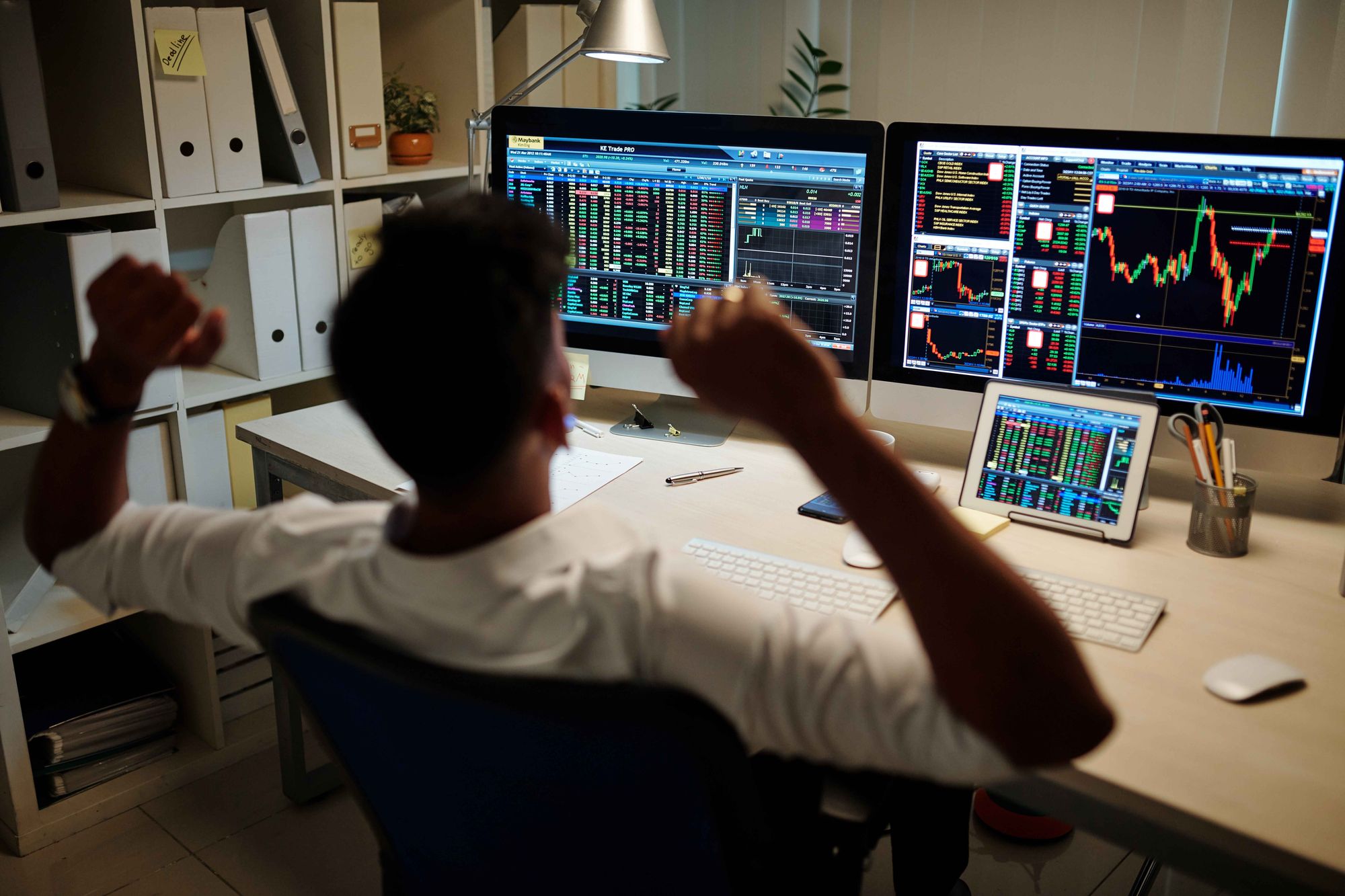
In algorithmic trading, the importance of risk management cannot be overstated. Algo strategies, while offering speed and precision, are inherently intertwined with risks. Understanding and effectively managing these risks is paramount as it determines the success or failure of such strategies. Here, we explore the pivotal role of risk management in shaping the fate of algo trading strategies.
The Crucial Role of Risk Management
Algo strategies utilise advanced algorithms to leverage market inefficiencies or trends. However, the automated nature of these strategies amplifies exposure to market risks. Overlooking these risks can swiftly convert profitable opportunities into significant losses.
Mitigating Market Volatility
- Effective risk management serves as a protective shield against the unpredictability of market volatility.
- By implementing risk mitigation measures, traders can minimise the adverse impact of sudden market fluctuations.
- These measures include setting stop-loss orders, diversifying portfolios, or employing hedging strategies.
- Mitigating market volatility through risk management strategies helps maintain stability and reduces the vulnerability of trading strategies to abrupt market shifts.
Preserving Capital
- Preserving capital stands as a fundamental goal in risk management strategies.
- Protecting the invested capital is crucial to the sustainability of trading strategies.
- Robust risk management practices, such as setting predefined risk limits, implementing diversification across assets, and utilising proper position sizing, aim to mitigate the risk of significant losses.
- By safeguarding capital, traders ensure the longevity and resilience of their trading strategies, allowing them to withstand market fluctuations and unforeseen events.
Adapting to Dynamic Markets
- In an ever-evolving market landscape, the ability to adapt swiftly to changing conditions is invaluable.
- Algo trading strategies, on online trading platforms like uTrade Algos, equipped with effective risk management mechanisms possess the agility to recalibrate promptly in response to evolving market dynamics.
- This adaptability ensures that strategies remain relevant and effective amid shifting market trends, economic conditions, or geopolitical events.
- By integrating risk management into their strategies, traders enhance their capacity to navigate and thrive in dynamic market environments.
Types of Risks in Algo Trading
Technical Risks
- Technical risks in algorithmic trading emerge from system failures, data inaccuracies, or programming errors.
- These issues have the potential to generate incorrect signals, resulting in flawed trading decisions and substantial financial losses.
- To mitigate technical risks, traders must conduct thorough system testing, regular maintenance, and meticulous scrutiny of algorithms.
- This proactive approach helps in identifying and rectifying errors before they translate into significant financial setbacks.
Market Risks
- Market risks are inherent in financial markets and arise from unexpected events, price fluctuations, or volatility.
- These risks can lead to adverse effects on trading strategies if not managed effectively.
- Employing risk mitigation tools such as stop-loss orders, diversification across various assets or markets, and hedging strategies helps traders mitigate the impact of market risks.
- This proactive risk management approach minimises exposure to market fluctuations and reduces the potential for significant losses.
Operational Risks
- Operational risks encompass various issues, including regulatory compliance, cybersecurity threats, and liquidity challenges.
- Non-compliance with regulations can result in fines or legal repercussions, while cybersecurity threats pose a risk of data breaches or financial losses.
- Additionally, liquidity risks may hinder the ability to execute trades efficiently.
- To manage operational risks, traders need to stay abreast of regulations, implement robust cybersecurity measures, and maintain adequate liquidity. Adherence to these measures ensures a smoother operational framework and reduces the potential impact of operational risks on trading strategies.
Behavioural Risks
- Behavioural risks in trading emanate from emotional biases, overconfidence, or herd mentality in decision-making.
- These risks can lead to irrational trading decisions, such as ignoring risk management principles or following market trends without adequate analysis.
- Mitigating them involves implementing discipline in trading strategies, adhering to risk management protocols, and employing tactics like position sizing to control market exposure.
- Managing them fosters a rational and disciplined approach to trading, minimising the adverse impact of emotional biases on trading decisions.
Principles of Effective Risk Management
- Setting Clear Investment Goals – Defining returns and risk tolerance aligns the trading strategy with financial objectives.
- Diversification and Avoiding Overconcentration – Spreading investments across various assets minimises individual risk exposure.
- Regular Monitoring and Evaluation – Tracking performance against goals identifies issues for timely corrective actions.
- Setting Stop-loss and Profit-taking Levels – Automated triggers limit losses and secure profits, mitigating emotional biases.
- Implementing Risk Mitigation Strategies – Techniques like hedging and position sizing mitigate potential losses and control market exposure.
- Conducting Thorough Research – Informed decisions stem from comprehensive market evaluation and strategy assessment.
Risk Management Techniques in Algo Trading
Stop-loss and Take-profit Orders
- These orders automate the selling of assets at predetermined prices, effectively limiting potential losses and ensuring secured profits.
- Employing stop-loss and take-profit orders aids in maintaining discipline within trading strategies, mitigating emotional biases, and improving risk management.
Trailing Stops and Dynamic Position Sizing
- Trailing stops adjust stop-loss orders as market prices fluctuate, protecting profits and limiting potential losses in line with market movements.
- Dynamic position sizing involves adjusting the size of positions based on prevailing market conditions, and optimising risk management by scaling exposure to match risk levels.
Portfolio Diversification and Rebalancing
- Diversifying investments across various asset classes or sectors minimises risk exposure to specific market movements, contributing to a more balanced portfolio.
- Regular rebalancing helps in realigning portfolio weights to maintain desired diversification levels, ensuring the portfolio remains resilient to market fluctuations.
Hedging Strategies and Quantitative Risk Techniques
- Hedging strategies, such as options or futures contracts, aim to offset potential losses in one position by taking another position to counterbalance risk.
- Quantitative risk techniques, like Value at Risk (VaR) or stress testing, provide advanced methods to estimate and manage portfolio risk, offering insights into potential losses in extreme market scenarios.
Effective risk management is integral to creating the best algo trading strategy. Utilising platforms like uTrade Algos that offer detailed performance analysis assists traders in actively identifying and rectifying discrepancies within their strategies. Such tools empower traders to effectively manage investment risks and maximise their potential for success.
Prioritising risk management in algo trading is imperative. Failure to implement robust risk management principles and techniques may result in substantial losses and hinder market reputation. By adhering to these strategies, traders can enhance overall performance and ensure sustained success in the dynamic landscape of financial markets.

 November 30, 2023
November 30, 2023






